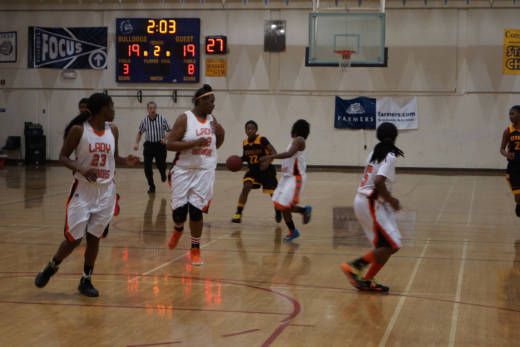She said it isn’t just about the recent cuts -- it’s about what she believes they expose. “This has been an ongoing issue that just has not been addressed,” Hanif-Cruz said. “It's only being addressed because there was this budget deficit, and now we're all as a community able to see what probably has been going on for decades.”
Hanif-Cruz and other parents have turned to attorney Elizabeth Kristen, who is a Title IX expert at Legal Aid at Work in San Francisco, where she runs the Fair Play for Girls in Sports program.
“This to me is a clean and clear and blatant violation of Title IX,” Kristen says of OUSD's cuts to high school sports, “and they already had a problem.”
Kristen points to sports participation data collected by Oakland schools which she said shows boys have more athletic opportunities than girls. At Oakland Tech, for example, 52 percent of athletes are boys, while 48 percent are girls, despite girls making up more than half of the student population. District-wide, 54 percent of athletes were male last year, while 45 percent were female.
“I realize they have this budget deficit,” Kristen said, “but balancing the budget on the backs of girls sends a terrible message. It tells girls they are second-class citizens,” And, she added, “It's against the law. This is a classic story of sex discrimination.”
After looking at figures for last year’s participation, national Title IX expert Nancy Hogshead-Makar agrees. “Before the cuts, girls already had fewer opportunities than boys did,” she said. “It’s 2018 and to not consider the fairness of cutting more girls' programs than boys' programs when girls already weren’t getting as much as boys were is tragic.”
Hogshead-Makar also raises questions about the coach-to-athlete ratio for girls at district schools. "It appears boys get far more coaches-per-athlete than girl do," she wrote in an email. "There are also lots of men coaching girls, and very few women coaching boys."
Hanif-Cruz and other parents expressed frustration and sadness at the position she and other Oakland parents find themselves in. While keenly aware that legal action against the already cash-strapped district could lead to a costly lawsuit, they’re inclined to believe that getting a lawyer involved may be the only way to ensure the district rights its course.
“I don’t have any desire to sue Oakland Unified,” said parent Christian Schreiber, an attorney who's handled civil rights cases. “But I also don’t think that they’re above being sued. I hope it doesn’t come to that.”
If Hanif-Cruz and other parents move ahead, Kristen said the first step would be to send a demand letter to the district with the intention of spurring negotiations about how to right the alleged Title IX violations.
Kristen has successfully sued districts for Title IX violations in the past. She said she starts with a demand letter hoping to garner a district's cooperation, rather than end up in court.
"It really makes sense to try to resolve these things quickly," she said. "High school is a fleeting time."
Ideally, Kristen said, a demand letter leads to an enforceable settlement agreement. "We could go to court if they don't follow what they say they’re going to do,” she said.
The advantage of a formal legal process, Kristen said, is that it gives parents a seat at the table, allowing them to help shape the scope of any remedy, "as opposed to letting it just play out the way it may or may not play out behind the scenes."
“My hope is that the district recognizes that its actions create the real threat of Title IX litigation,” Schreiber said, “and they take appropriate and immediate action to reconsider the decision.”
Earlier this week, the district announced three fall sports, girls tennis, girls golf and girls lacrosse are coming back, thanks to donations of close to $40,000. That allows about 150 girls to keep playing.
OUSD spokesman John Sasaki said that helps balance the impact. “We’re certainly more fair than we were a couple days ago,” he said Monday at a press conference. The $250,000 donation from the Raiders will go a long way toward bringing back other sports.
But Kristen says reinstating programs temporarily through outside money does not solve the equity issue. "The problem is the way that it has been packaged as a temporary solution and that girls' sports seem more contingent and less supported by the schools," she said. “They’ve sent a message to girls that they aren’t as important."
Kristen and Hogshead-Makar point out that Title IX violations are common in high school athletics. "It's actually rare for us to find a school where they do have parity for girls in sports even though this law has been around for such a long time," Kristen said.
But as a longtime Oakland resident, Kristen said Oakland Unified's data is particularly frustrating.
"We have a community that should be committed to equality for girls, so the fact that this has been going on under our noses for all this time is really disappointing." She added that in her experience, once she starts looking into a district, she "usually finds these kinds of athletic participation gaps for girls are really the tip of the iceberg."
The district declined to comment on the prospect of legal action. Requests to the district's Title IX coordinator, Gabriel Valenzuela, were directed to spokesman Sasaki, who said Valenzuela was "of course involved in the process to ensure that we are complying with federal law."
The officials did not address questions about underlying Title IX compliance.
